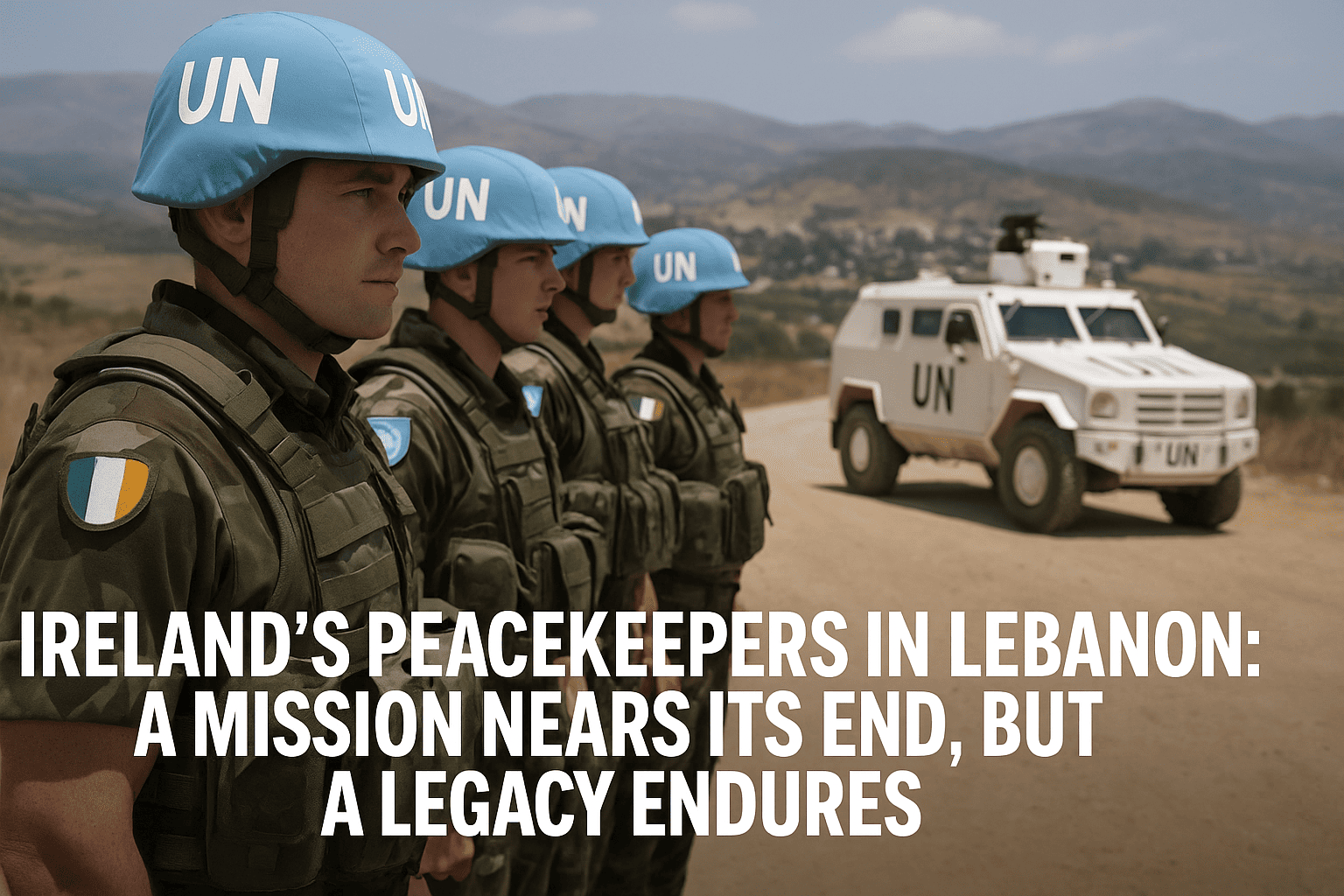
A Vote for Stability
The French-led proposal passed 15–0 in New York, balancing competing pressures: the United States and Israel had argued for an end to the mission, while Lebanon, Ireland, and France pressed for its continuation. The compromise allows UNIFIL (United Nations Interim Force in Lebanon) to maintain stability in the near term before transferring responsibility fully to the Lebanese Armed Forces.
Ireland contributes 348 soldiers to the mission — its single largest overseas deployment and one of its longest-standing. For many in uniform, serving in Lebanon is almost a rite of passage.
More Than a Mission: A National Commitment
Ireland’s participation in UN peacekeeping has long been central to its identity as a militarily neutral state. In Lebanon especially, the Defence Forces have built a reputation for professionalism, fairness, and sacrifice. Since first deploying in 1978, 47 Irish peacekeepers have lost their lives there. Their memory is etched not only in military history but in Ireland’s collective sense of global responsibility.
Tánaiste and Minister for Defence Simon Harris described the extension as vital:
“The situation on the ground is stable but fragile. Ireland has long argued that UNIFIL’s presence is crucial in maintaining peace and supporting the Lebanese state.”
Recruitment, Reform, and Reality
Peacekeeping missions serve not just diplomacy but the Defence Forces themselves. Overseas service is often a key attraction for recruits, offering opportunities for experience and advancement that Ireland’s modest domestic defence structure cannot provide.
Retired Army lieutenant colonel Dan Harvey calls overseas postings “a huge draw,” adding that Ireland will almost certainly be asked to step into new missions once UNIFIL winds down. Meanwhile, Defence Forces leadership sees the transition as a chance to recalibrate. With reforms pending and capability gaps to address, the drawdown could provide what one officer called “breathing space.”
A Fragile Peace, a Tested Force
For all the talk of strategy, the human stakes remain. Lebanese civilians continue to live in the shadow of uncertainty, and Irish soldiers patrol areas where tensions can flare with little warning. Chief of Staff Lieutenant General Rossa Mulcahy emphasized that overseas missions are essential for testing doctrines, strengthening operational readiness, and, most importantly, supporting global peace.
“The Defence Forces absolutely intend to keep a presence overseas — whether in UNIFIL or elsewhere,” he said.
What Comes After UNIFIL?
As UNIFIL’s mandate winds down, Dublin officials are already examining where Irish troops might serve next. Options include African missions, European Union operations, or new UN deployments. Wherever they go, the expectation is clear: Ireland will remain one of the first nations asked to contribute, thanks to its long-standing reputation as a reliable peacekeeping partner.
The Legacy of Lebanon
More than forty years of Irish service in Lebanon have left a deep imprint. Generations of soldiers have walked those patrols, shared meals with local families, and sometimes paid the ultimate price. The mission shaped not only the Defence Forces but also Ireland’s sense of itself as a small country willing to shoulder global responsibility.
As the countdown to 2027 begins, one truth endures: Ireland’s story in Lebanon is not just about a mission; it is about a nation’s belief in the value of peacekeeping as part of its identity.
A Vote for Stability, A Testament to Identity
The renewal of UNIFIL’s mandate may buy time in a fragile corner of the Middle East, but for Ireland it underscores something deeper: peacekeeping is not a sideline, it is a signature. Each rotation of troops reflects a national choice to project stability rather than power, service rather than ambition. As the mission in Lebanon edges toward its conclusion, Ireland’s willingness to stand in difficult places will remain a quiet constant. In a world where instability travels fast, the country’s enduring commitment to UN peacekeeping is less about strategy than about identity — a reminder that small nations, too, can carry great responsibility.
